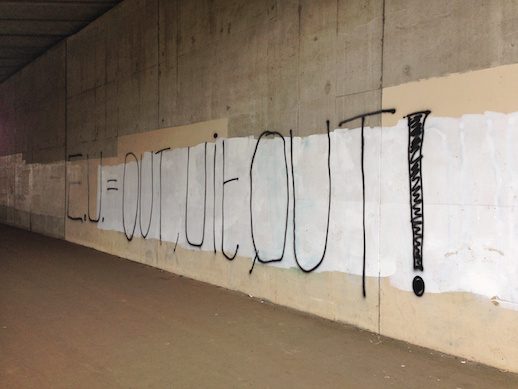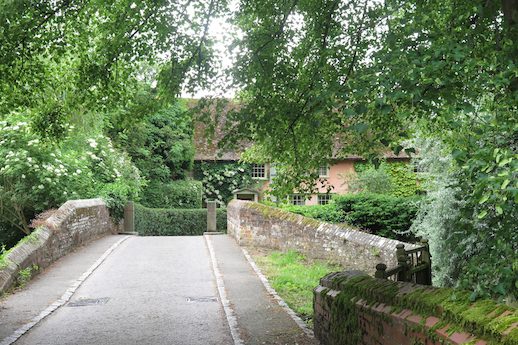…In which, as the year comes to its end, our friends and collaborators look back on the past twelve months and share their moments;
I don’t want to reflect in much detail on 2016, which flowed past full of shadows, both personal and political, and with too few gleams of light. Instead, I want to look forward, and think about the things I’m going to take with me into next year, and the years to come. These are some of the things I’ve rescued from the rubble of the last twelve months:
Reading
“Stories can change lives if we’re not careful,” says Ali Smith. “Tell the right stories and we live better lives”. It’s never felt more important to discover new and different stories than it does right now: stories that challenge my beliefs and biases and extend my imaginative sympathies; stories that expand our collective idea of who we are and what we might become. Smith’s new novel Autumn achieves this, I’m told, which is why it’s on my Christmas list; Nikesh Shukla’s rightly garlanded anthology, The Good Immigrant, and Olivia Laing’s beautiful and humane The Lonely City both did the same for me this year.
This kind of reading isn’t about retreating into a book and hiding from reality; it’s about using stories to open ourselves to the other when the spectre of the other is being used to divide us, and in this way to actively resist a closing-down, a shutting-off, a diminishment of humanity.
Writing
Publishing-wise, the year just gone was a busy one for me, with Rain: Four Walks in English Weather, the paperback of At Hawthorn Time, and all four Seasons anthologies hitting the shelves. But in terms of creativity, my energies, between Mixmag shifts, were mostly focused on a new novel: my ‘WIP’, or work-in-progress, which “hoovers everything up”, to quote Ali Smith again.
There were times in 2016 when writing fiction felt like fiddling while Rome burned; but in Emily St John Mandel’s brilliant work of speculative fiction, Station Eleven, the motto of the travelling theatre that tours the few scattered survivors of a global apocalypse is ‘survival is not enough’. So I remind myself that she’s right: art is not a luxury. We need culture of all kinds to be fully human – never more so than in dark times.
I don’t believe that art necessarily has duties beyond the terms it sets itself – by which I mean that it is enough merely for paintings, and stories, and pop songs to exist. It’s true, though, that art can also attempt something more than that, and I hope that what I’m working on is not deaf to the current moment, and perhaps does more than entertain.
Doing
Towards the back end of this year I discovered a need to help create the kind of society I want to live in. I found that www.do-it.org lists all sorts of local volunteering opportunities; it’s also a good way of researching projects to donate to or fund-raise for. I hope and believe that strengthening communities by getting involved in local projects, particularly cross-culturally, can act as a bulwark against intolerance (think of Cable Street!) – while supporting groups and organisations that are on the front line against bigotry and injustice, like Amnesty International, Migrants Organise, Stand Up To Racism and others, feels important to me, too.
Not everyone has the spare cash to donate to things, though. And not all of us are suited to protests and marches. But surely there are things we can all do to contribute to a healthy society, using the skills and connections and interests we already have. Next year I’m going to find out what I can do to be useful.
Place
If 2016 was good for anything, it was good for walking: I tramped around bits of Suffolk (pictured above), Cornwall, Cambridgeshire, Surrey, the Lake District, Dorset, Hampshire, Dartmoor, Northumberland (pictured top) and – of course – South London, where I live. As I walked I thought about England, the place I’m so drawn to explore and to write about: what it consists of, who it excludes, and what it means. England isn’t a country, I don’t think, so much as an alluring and troubling idea.
The last 12 months were also a time for thinking hard about the conflicts that are affecting the places I love, from driven grouse shooting to natural flood prevention and rewilding to intensive agriculture. I haven’t come up with any answers (sorry!), but I have learned to be wary of certainty and dogma and bad-faith arguments; wary, too, of those whose passion makes them closed-minded, or whose combative discourse muddies the waters for the people and organisations tasked with finding a way forward.
There are challenges ahead for England, and Britain, and the UK; more, too, on the world stage. Join your local Wildlife Trust, if you can and you haven’t already; I reckon Client Earth could do with our support in the coming months and years, too.
I can’t remember ever being so keen to see the back of a year as I am right now, as though the shadow 2016 cast will magically shift once the clock ticks past midnight on December 31st.
Would that it were so simple. And yet there’s power in these arbitrary lines – if only the power to pause for a moment, take stock of the world we live in and how we live in it, and reaffirm our values for the months to come.
Bring it on.
Melissa Harrison on Caught by the River / on Twitter

